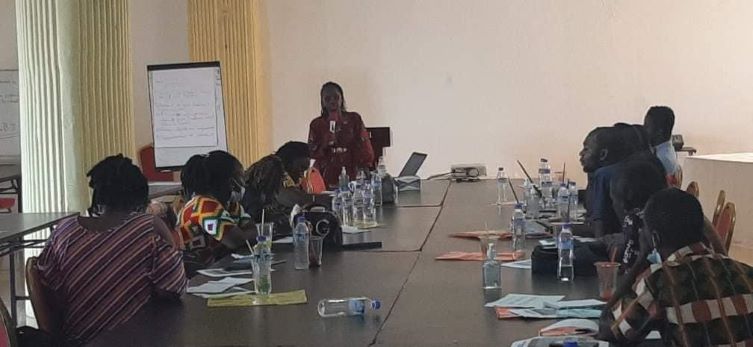PHOTO: NCD Executive Director, Daintowan Pay-Bayee interacting with Journalists
By Frank Sainworla, Jr., fasinworla@yahoo.com
A rallying call has been made on the Liberian media, both from home and abroad, to give more support to the struggle in eliminating discrimination and empowering Persons with Disabilities (pwDs).
The call ranges from giving added voices to PwDs, using the appropriate terminologies, using the rights-based approach in covering disability issues, as 20 Internews PwDs Reporting Fellows ended a two-day refresher training workshop in Monrovia over the weekend. The Journalists gathered to assess a five-month reporting project across Liberia.
The reporting fellowship is a component of Internews Inclusive Media Project (IMP), which “seeks to build the capacity of individual reporters to cover the perspectives and voices of persons with disabilities.”
Madam Naomi Harris, Director of the National Union of Organization of the Disabled (NUOD) thanked the Liberian media for the role they are playing in promoting the interest of PwDs, but said more needs to be done.
She said increased interest by policy makers could be generated in empowering PwDs, if issues affecting them are increasingly flagged by the media.
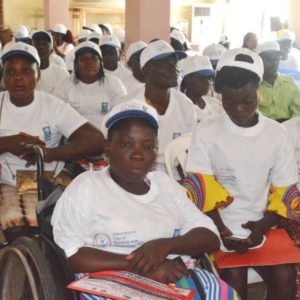
FLASHBACK: In 2018, a 5-year National Plan of Action was launched to empower persons with disabilities for the inclusive, equitable and sustainable development
“Over the years, voices of persons with disabilities have not been adequately flagged, as PwDs are part and parcel of the society,” the NUOD boss asserted. NUOD was established in 1995 and was one of the institutions that pressed for the later creation of a National Commission on Disabilities (NCD).
Use of terminology in helping to break stigma
In a presentation done via Zoom from Nairobi, Kenya, Jackie Lidubwi first commended the PwD fellows and said, “I’m proud of the fellows…Actually you’ve done well.”
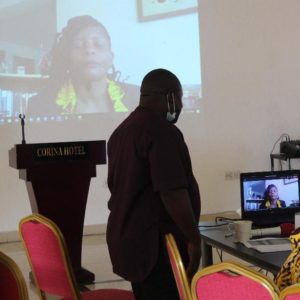
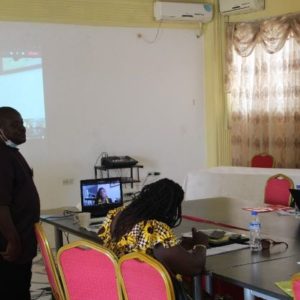
She was however, quick to point out that a lot needs to be done on training in the way terminologies relating to PwDs are used in the media’s reportage.
Madam Lidubwi, who is Project Lead-Internews Inclusive Media Project, said “language is power and that it can help to create stigma.” The Journalists were also urged to end outdated cultural practices on disability and help boost the morale of people with disabilities in the society.
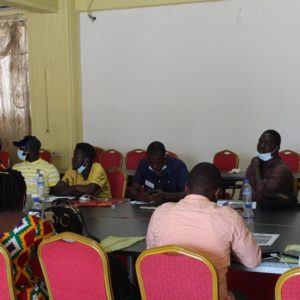
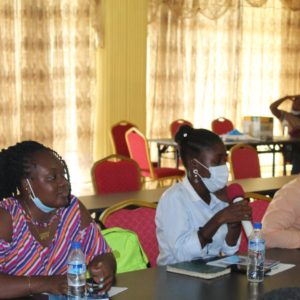
She cited a number of rules on reporting about PwDs, including calling people by their names, using people first before following with the kind of disabilities they have.
People’s disabilities should only be highlighted if it is a positive portrayal of their individual accomplishments/strides, Madam Lidubwi added.
Disability shifts from charity to rights-based model
In Liberia, when the “Group of 77” was established in the 1970s under the Vice President’s office, its key aim was to seek the welfare of people with disabilities under the “charity model”, the Executive Director of the National Commission on Disabilities (NCD), Daintowan Pay-Bayee told the PwDs Fellows.
Ms. Pay-Bayee, who underscored the vital role the media have played in promoting PwDs interest, challenged Journalists to now use the human rights-based approach in reporting issues about Persons with Disabilities.
She said since the UN Convention on the rights of PwDs came into force, it has shifted from the charity and medical models to the rights-based model saying, “teach me how to fish”.
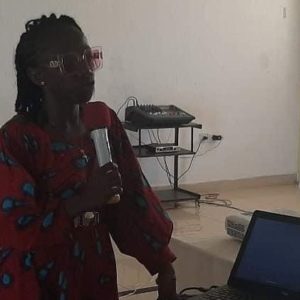
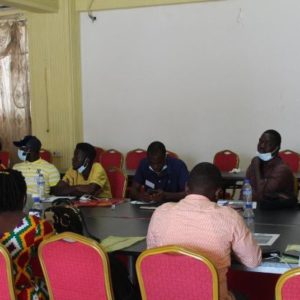
The Convention was adopted in 2006 at the United Nations Headquarters in New York and came into force in 2008.
“There is a need to keep advocating, lobbying to promote the rights of Persons with Disabilities in Liberia,” the NCD boss said.
She attributed lack of adequate support for the rights-based model as one reason responsible for PwDs ending on the streets begging and are abandoned by their families.
Ms. Pay-Bayee pledged her Disabilities Commission full commitment to working with the 62 disabilities NGOs operating in Liberia to ensure PwDs inclusiveness, end discrimination and promote their sustainable development.
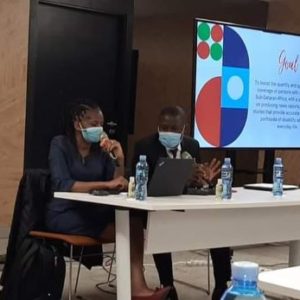
She rallied the Liberian media to help in breaking the barriers that are hindering the full participation of people in the 13 disabilities categories, including the physically challenged, visually impaired and the Deaf, a category she said has been left far behind in Liberia.
The NCD boss, who is herself physically challenged, asserted that there are some people in the society including family members who feel that PwDs “don’t have the right to life”, urging Journalists to “report the best sides of our lives”.
Ms. Pay-Bayee then stressed the need for organizations promoting the interest of persons with disabilities and the media to forge a strong partnership.

